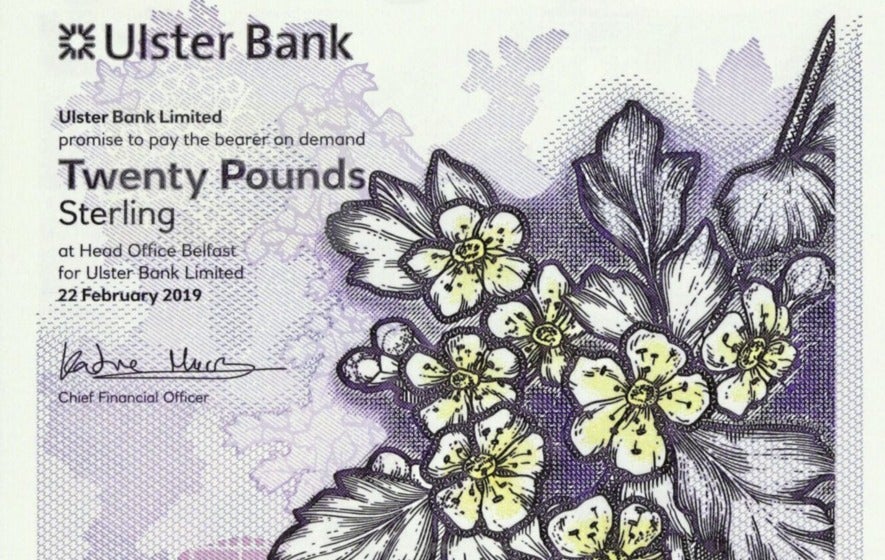
Ulster Bank, a retail bank and one of the Big Four Irish clearing banks, has put into circulation new £20 polymer banknotes, while encouraging customers to exchange their paper notes.
The new notes have been hailed as the most secure banknote yet by the Bank of England, thanks to their plastic material.

Access deeper industry intelligence
Experience unmatched clarity with a single platform that combines unique data, AI, and human expertise.
The material allows for enhanced security features, such as the see-through windows and holograms.
The Bank of England has yet to confirm when the old £20 notes expire, although its website promises people will be given six months’ notice of its withdrawal.
The new notes will “last two and a half times longer” the old ones
According to Terry Robb, Ulster Bank’s Head of Personal Banking in Norther Ireland:
“The new polymer notes last two-and-a-half-times longer than traditional cotton notes, making them more sustainable and environmentally friendly. Their advanced security features also make it easier for customers to protect themselves from being a victim of fraud. And encouragingly, our research shows that the public do see polymer as more secure than the older notes.

US Tariffs are shifting - will you react or anticipate?
Don’t let policy changes catch you off guard. Stay proactive with real-time data and expert analysis.
By GlobalData“Whilst digital change is happening quickly, and more and more people are moving to digital forms of banking and transactions, the research shows people value bank notes and see a future for them, so we are proud to continue producing bespoke local banknotes.”
Cash remains king despite Covid
The new bills are brought in at a time when million Brits shun cash fearing the spread of Coronavirus.
However, in a survey conducted between 11th and 25th September, the bank found that Northern Ireland is the UK region least likely to become a cashless society.
Carried out by research firm Cognisense, the analysis shows that 87% of NI people are currently still using bank notes in some form. However, 61% say their usage has decreased during the Covid-19 pandemic.







